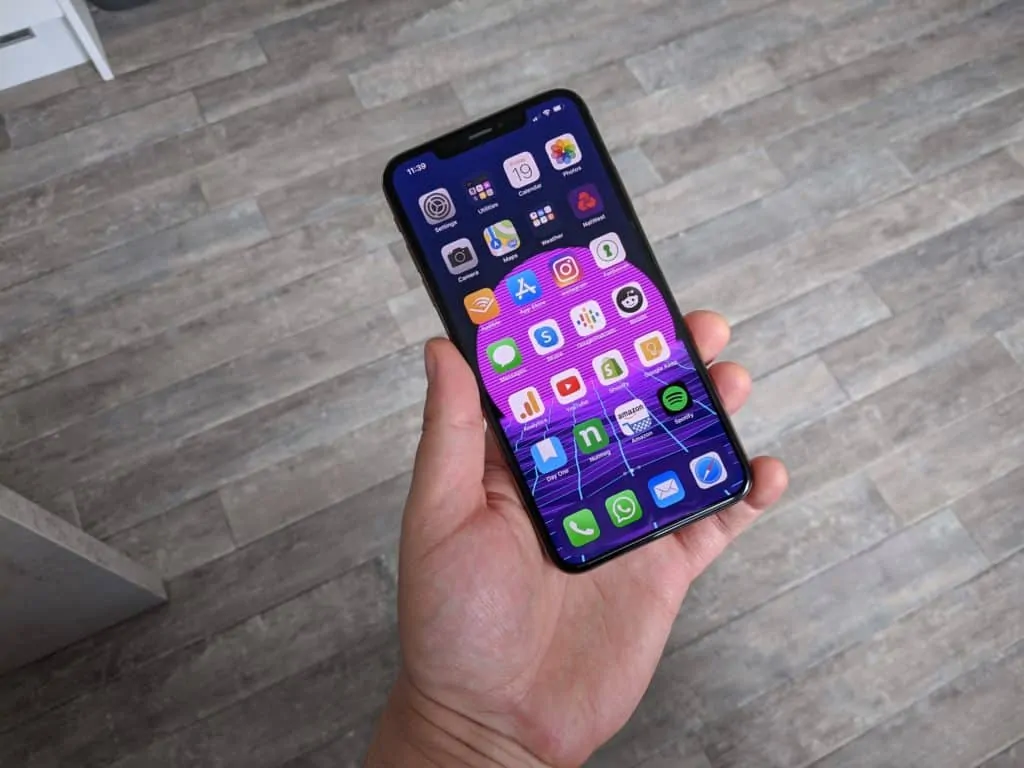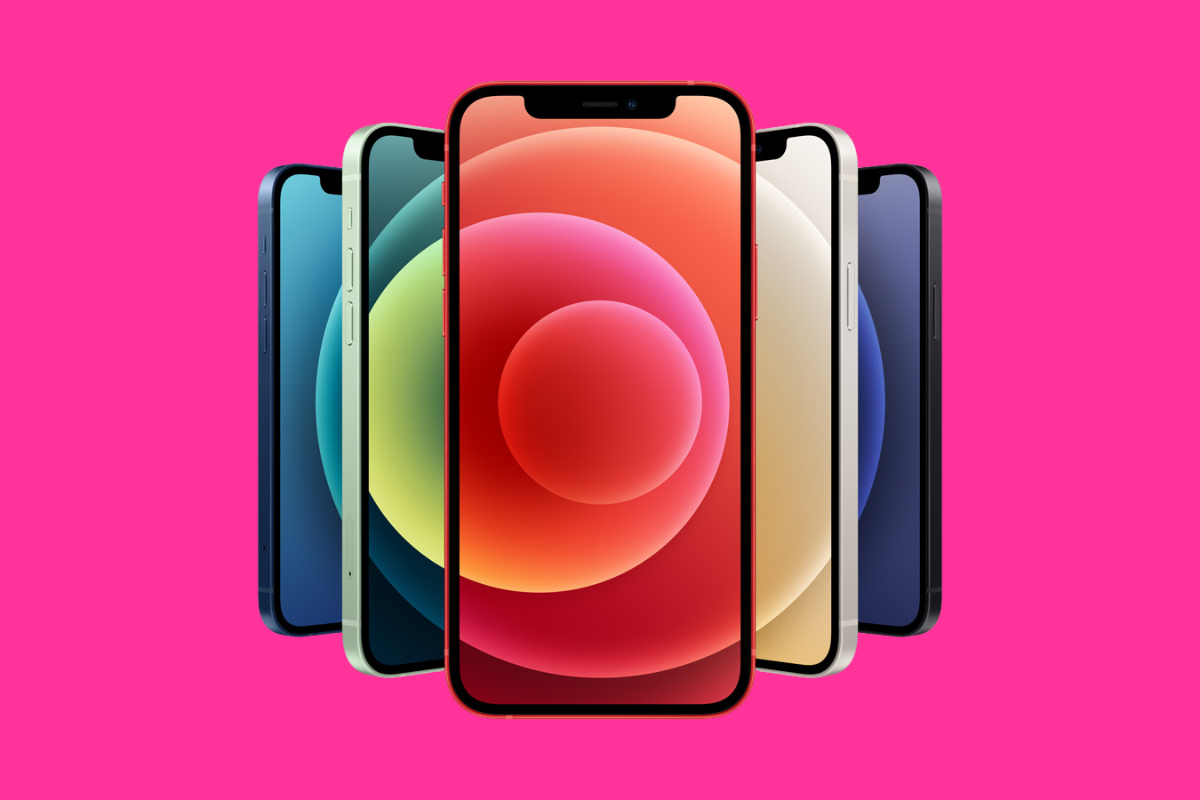“Is the iPhone 12 waterproof” – this is one of the most Googled terms about Apple’s iPhone 12. But just how waterproof is Apple’s first 5G phone? Do you need a case? Let’s find out…
🔑 Key Takeaways: Is Apple’s iPhone 12 Waterproof
- 📱 The entire iPhone 12 lineup, including the Pro, Mini, and Pro Max, is water-resistant.
- 💦 Each model comes with an IP68 rating, ensuring resistance to water and dust.
- 🌟 No difference in water resistance between iPhone 11 Pro models and iPhone 12 models.
The iPhone 12 series comes with a splash of assurance against water, thanks to its IP68 certification.
This means that whether you opt for the iPhone 12, 12 Pro, 12 Mini, or the 12 Pro Max, you’re equipped with robust water and dust resistance. Alongside the vibrant OLED displays and the speed of 5G, this feature adds a layer of durability to your device.
Here’s a handy guide covering all of the different IP ratings for Apple’s iPhones.
Apple maintains consistency in its water resistance quality, as the iPhone 11 Pro and Pro Max models share the same IP rating as the iPhone 12 series. So, if you’re upgrading from the 11 Pro to the 12, rest assured the level of water resistance remains steadfast.
That’s the good news. Your iPhone 12 – regardless of what model you’re using – can survive a pretty significant amount of water exposure. This includes splashes, heavy rain, and even drops in bodies of water like swimming pools, the bath, or your dog’s water bowl.
But there is a catch. And this is something I have direct experience with as it completely killed my iPhone XS Max. Read on to find out how my iPhone XS Max was rendered useless by a mere trickle of water.
How Good Is Apple’s IP68 Water Resistance? My Own, Personal Horror Story

Let’s cut to the chase: IP68 is the gold standard for electronic device water resistance, right? That’s what I thought until my iPhone XS Max, sporting that very IP68 badge, met its match against a few droplets of water.
Here’s the breakdown: A seemingly harmless encounter with water from a faucet turned my iPhone XS Max from a cutting-edge gadget to a lifeless slab of tech.
We’re talking total shutdown, no signs of digital life. This wasn’t just a hiccup; it was a full-blown trip to the Apple Store—which, by the way, is no quick jaunt at 45 miles out.
The Apple techs were stumped. My iPhone had barely gotten wet, yet here it was, completely out of commission.
The culprit? A few rogue water droplets that infiltrated the FACE ID sensor on a day that could fry an egg on the sidewalk. Initially invisible, these droplets manifested as a misty film over the FACE ID lens as the day heated up.
Condensation was the unexpected villain in this story.
I tried the usual DIY moisture evictions—rice, silica, even kitty litter. But the foggy veil over my iPhone’s FACE ID remained defiantly in place.
Here’s the kicker: the iPhone XS Max and the iPhone 12 share the same IP68 rating. So, can you blame me for raising an eyebrow at these water resistance claims?
From my experience, I’d say that modern iPhones can usually take a splash or two. But it’s a roll of the dice. My iPhone rolled snake eyes.
So, what’s the takeaway? Treat your iPhone 12 like it’s made of sugar. Keep it dry, and if you’re the adventurous type or just a bit clumsy around liquids, arm your iPhone with a waterproof case. It’s an investment that could save you a lot of grief and cash down the line.
Remember, water resistance is more of a temporary shield than an invincible armor. Play it safe, and your iPhone 12 will thank you by staying alive and kicking.
iPhone 12 Water Resistance FAQs
Can I Take My iPhone 12 in the Shower?
While the iPhone 12 is water-resistant, steam and soaps can degrade its protective seals. It’s best to avoid taking it into the shower.
What to Do if iPhone 12 Gets Wet?
If your iPhone 12 gets wet, wipe it off with a soft, lint-free cloth, eject any water from the lightning port by tapping the phone gently against your hand, and let it dry out completely before using it again.
Can I Take Underwater Pictures with iPhone 12?
Yes, you can snap underwater pictures, but it’s risky. The IP68 rating is for controlled conditions, and real-life water bodies may have variables that could lead to damage. Use a waterproof case for added protection.
Wrapping Up / Final Thoughts

The iPhone 12 series boasts an IP68 certification, reflecting its robust defense against water. This certification results from rigorous testing, confirming that these devices can withstand immersion in water up to 6 meters deep for approximately 30 minutes.
That’s the official line but it is crucial to understand that water resistance is a feature that can weaken over time.
Repeated exposure to water, especially under varying temperatures or conditions, can erode the iPhone’s water-resistant seals. And the type of water matters too: salt water or chlorine cause way more issues than standard tap water.
Think of it as a sturdy shield that gradually wears down with battle; it’s strong but not indestructible. The real-world is full of unpredictable elements like saltwater, chlorine, and various chemicals that can get around your iPhone’s protections.
Personal experiences, such as the unfortunate incident with my iPhone XS Max, serve as stark reminders that IP68-rated devices are not immune to water damage.
Therefore, if you’re frequently around water, it’s wise to take extra precautions. A waterproof case is, perhaps, one of the easiest way to ensure your iPhone remain free from any water-related damages.
Also, and this is super important: Apple’s warranty does not cover water damage, even for IP68-rated devices. This fact alone should motivate you to handle your iPhone 12 with extra care around water. Treat it as a valuable piece of technology that can resist water but is not invulnerable to it.


